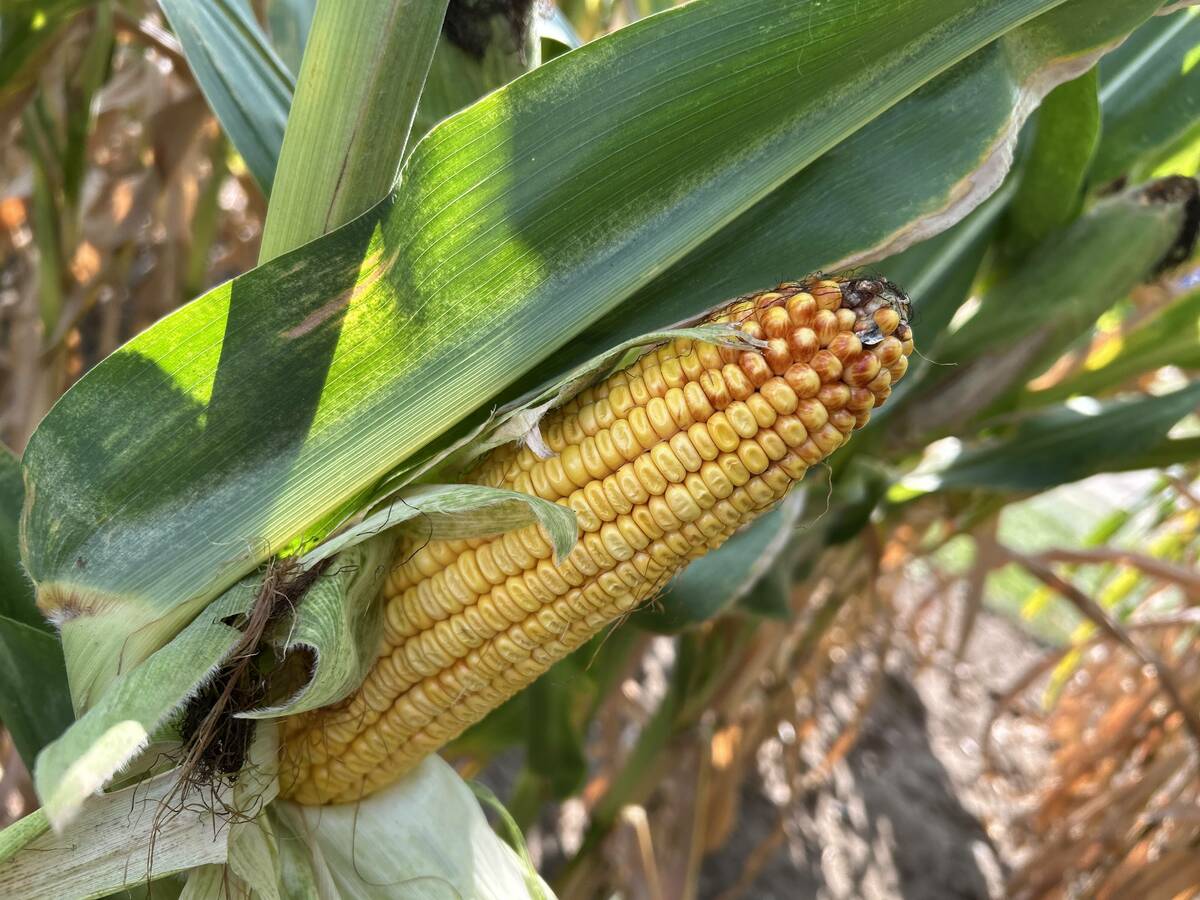As the season approaches for 4-H beef shows, some members may wonder
how they will be judged. Are the rules consistent from show to show?
Are the judges qualified for this demanding job?
Ann Marie Neilsen Griffin, a west-central Saskatchewan 4-H specialist,
says their show judges are indeed qualified.
She said the Saskatchewan Association of Agricultural Societies and
Exhibitions, or SAASE, is the body that selects judges for a show. It
looks for their past experience and verbal approvals from 4-H leaders,
Read Also

Crop estimates show mixed results
Model-based estimates used by Statistics Canada showed the 2025/26 crop year has seen increases in canola, corn for grain, oats and lentils production while seeing dips in spring wheat, durum wheat, soybeans and barley in comparison to 2024/25.
committee members and club members. The judges are to be knowledgeable
of the 4-H philosophy and specific beef show guidelines.
Donna Bohrson, who works with the Saskatoon Prairieland Exhibition,
explained where that fair gets judges for its shows.
“The program committee selects a judge beforehand, who is qualified,
educated and experienced in 4-H cattle judging, and assigns them to a
show.”
Bohrson said Prairieland has never had a complaint.
“In fact, the cattle show we had last summer here at the Ex, the judges
received rave reviews. They educated the students on how and what to
look for as a judge, and many learned a great deal from them.”
Bohrson said SAASE has a new apprenticeship judge program.
“It involves a young 4-H member, and they get to learn from a mature
and experienced cattle judge. Then, throughout the year, these young
judges put in what they’ve learned and get a chance to judge small 4-H
shows.”
Marion Funk, who works for the Provincial Exhibition in Brandon, said
4-H members there are taught how to judge a certain animal from when
they join. They are instilled with the 4-H philosophy and judging
guidelines from a young age.
Keeping competitions honest
The following are excerpts from Holstein Canada’s advice to young
people about showing animals.
Shows have been around since the late 1800s, and we just seem to take
them for granted. … Competing to win is healthy, but winning at any
cost is not.
Unethical show preparation practices jeopardize the high regard the
Canadian Holstein is held worldwide. And it compromises personal
integrity. This is where you, the young adult, come in. …
Continue to present our superior Canadian Holstein, not a fabricated
show animal.
Everyone, including animal activists, must be satisfied that illegal
drugs are not present, that there is concern about withdrawal time of
drugs and that practices such as starvation and force-feeding are
non-existent.
Procedures like tail freezing which could cause permanent paralysis,
contravene the code of ethics. And misrepresenting information, such as
falsified birthdates, is being closely regulated by the association. …
To justify unethical behaviour because someone else is doing it is
schoolyard mentality. …
While winning at shows is exciting, it’s not the most important thing
in life. Meeting others with similar interests, learning
responsibility, building character, and understanding the industry …
really matter.














